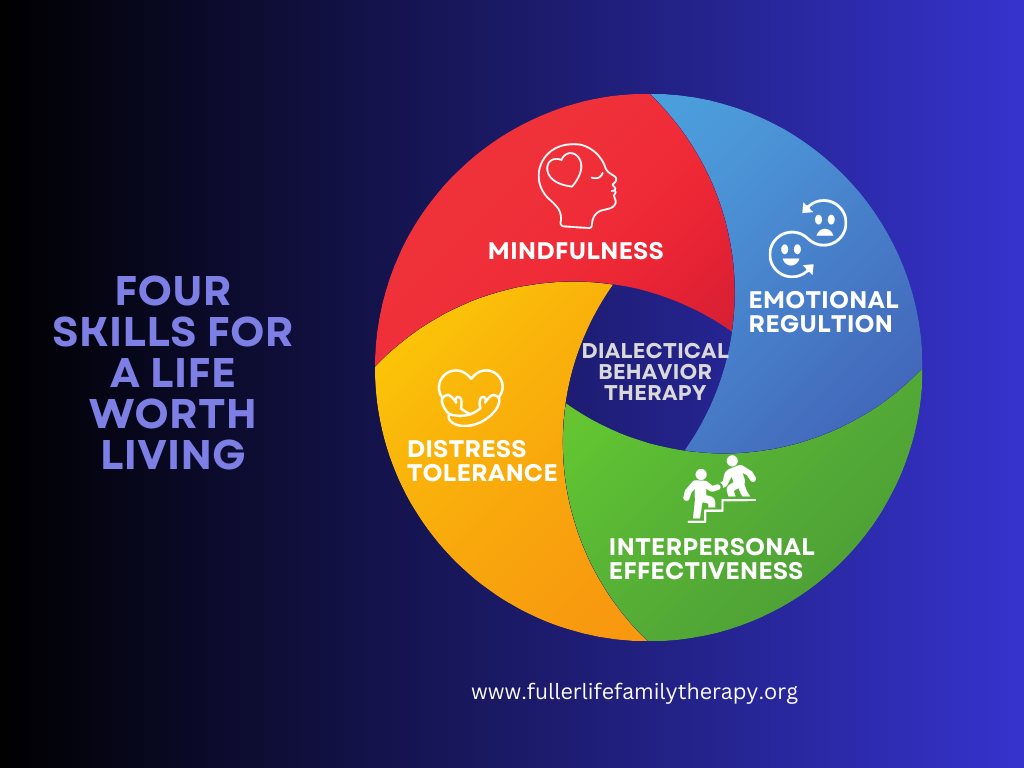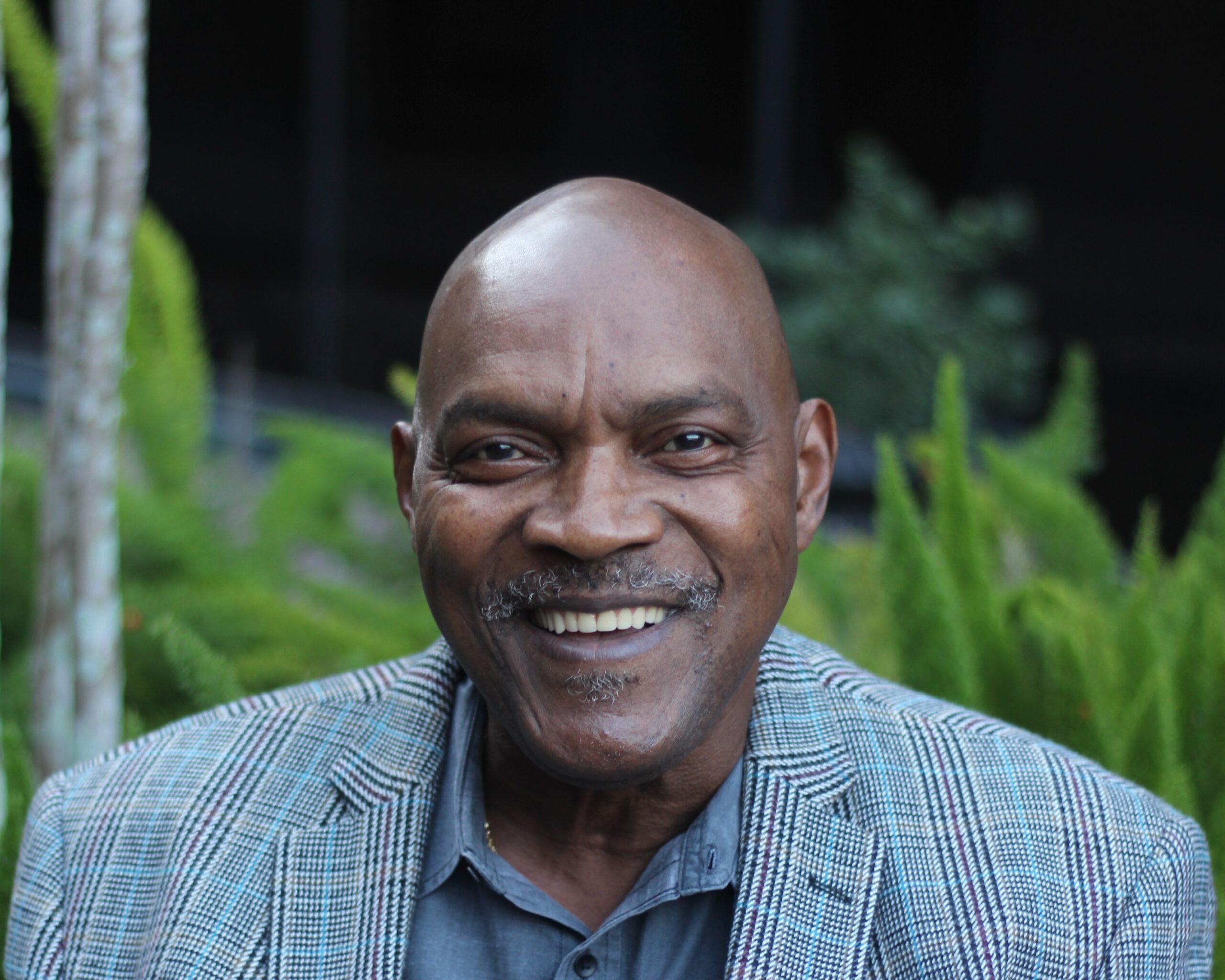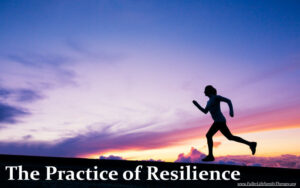Dialectical Behavior Therapy: From a Life of Misery to One Worth Living
We all struggle to manage our emotions. Our self-destructive behaviors get in the way and the result is often that we don’t have the relationships we desire. There’s a therapy called Dialectical Behavior Therapy with a focus on helping clients learn to tolerate and manage challenging emotions by growing in 4 skill areas.
Most people have never heard the word ‘dialectical.’ Marsha Linehan, the creator of Dialectical Behavior Therapy (DBT) in the 1980s, and whose memoir is named “Building a Life Worth Living,” defines “dialectical” as an integration of opposites. In simpler terms, dialectical means two opposing things being true at once. But even that is still kind of confusing!
What is Dialectical Behavior Therapy
DBT is a broad-based cognitive behavioral therapy originally developed for suicidal clients and people with borderline personality disorder (BPD). It is useful for individual therapy, skills training, and phone consultations. It has a variety of interventions and is teachable, practical, and accessible to all levels of clinicians. DBT is applicable across various settings and client populations.
Do you struggle to manage your emotions? DBT can help.
DBT is useful with a variety of disorders for individuals who either over or under-control emotions. One of the main differences between under-controlled and over-controlled personalities is self-control. While under-controlled people can benefit from developing their ability to regulate and manage their behavior and emotions, people with over-controlled personalities may not benefit from those same coping strategies. Self-control can get in the way of people with over-controlled personalities. For instance, struggling to voice your opinion or enjoy a spontaneous night out might interfere with your relationships and living a fulfilling life.
Four ways DBT can help you achieve a life worth living
The goal of DBT is to help increase resilience and build a life experienced as worth living. This can be accomplished by helping individuals change behavioral, emotional, cognitive, and interpersonal patterns that cause problems in day-to-day living. In DBT, self-destructive behaviors are understood as maladaptive or inappropriate solutions for escaping from a life of misery. DBT consists of four modules: Mindfulness, Interpersonal Effectiveness, Emotional Regulation, and Distress Tolerance.
Here are the 4 ways:

1. Mindfulness
Mindfulness is about observing and experiencing reality as it is, being less judgmental, and living in the moment with effectiveness. They are the first skills taught, and they support all the other DBT skills. DBT mindfulness skills are translations of meditation practices from Eastern and Western spiritual traditions into specific behaviors that you can practice. No spiritual or religious convictions are expected or necessary for practicing and mastering these skills.
2. Interpersonal Effectiveness Skills
Interpersonal Effectiveness helps one manage interpersonal conflicts effectively and maintain and improve relationships with other people (those you are close to, as well as strangers). These strategies include asking for what one wants, saying no to unwanted requests, and doing this in a way that maintains self-respect and keeps others liking you. It includes building relationships and ending destructive ones, helping to find potential friends, building relationships with friends, maintaining positive relationships with others, and (when necessary) ending destructive relationships. Learning to walk a middle path in a relationship, and balancing acceptance with change in self and relationships with others.

3. Emotional Regulation Skills
Emotional Regulation skills help people manage their emotions, even though complete emotional control cannot be achieved. To a certain extent, people are who they are, however, people can learn to have more control. In this module, the client learns to understand and name their emotions. Emotions serve important functions, and it can be hard to change an emotion if people don’t understand what it does for them. The client also learns to change their emotional responses. These skills can help reduce the intensity of painful or unwanted emotions, such as anger, sadness, or shame.
4. Distress Tolerance Skills
The Distress Tolerance module helps people learn to tolerate and survive crises without making things worse. There are two main skill sets in this module. 1) techniques for tolerating painful events, urges, and emotions when you cannot make things better right away; 2) how to reduce suffering by helping you accept and enter fully into life even when it is not the life you want.
For an example of an emergency distress tolerance exercise called S.T.O.P. Visit: https://www.youtube.com/watch?v=B2caMQUUVdc
DBT has been shown to be effective in multiple trials across several independent research sites. Do you love research?
More on DBT and Marsha Lineham:
DBT is both effective in reducing suicidal behavior and cost-effective in comparison to both standard treatment and community treatments delivered by expert therapists. It is currently the gold-standard treatment for borderline personality disorder, a condition characterized by pervasive and difficult-to-manage emotion dysregulation. Search online for your nearest Certified DBT Therapist
At Fuller Life Family Therapy, we consider it a privilege to work alongside you on your journey. Please feel free to share this article with anyone who may find it helpful.
Harold Gibson, Resident Therapist
Licensed Professional Counselor Associate, LCDC-I
Under the Supervision of Amy Fuller PhD, LMFT-S, LPC-S, CST















